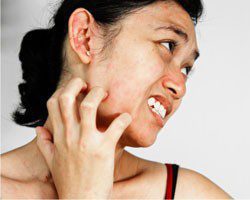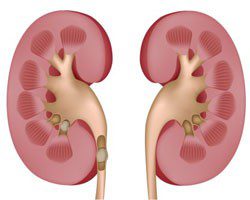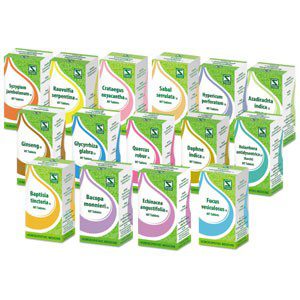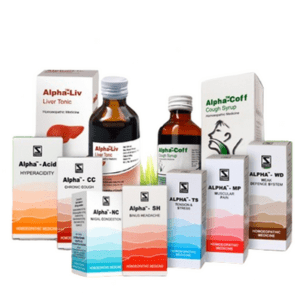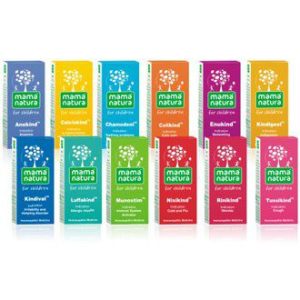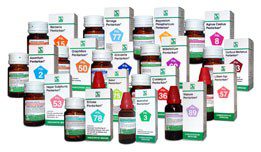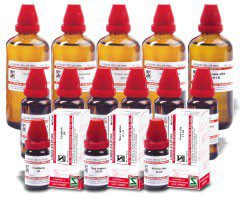Doctors Zone
Journal (JEBH)
Alpha™- Liv Drops
Alpha – Liv Drops Due to high demand from the market, for a formulation in drops for the liver, apart from the syrup already available in the market, Schwabe India developed this product. Introduction The liver plays a key role in metabolism. It has anabolic and catabolic, exocrine and endocrine functions. The liver is a blood reservoir, filter and store of different substances (e.g. glycogen, vitamins). It is the site of serum protein (e.g. albumin, prothrombin, fibrinogen) and enzyme synthesis. Metabolic processes (e.g. bilirubin, hormone, carbohydrate and lipid turnover) and the removal of toxic products are important liver functions. 1 Hepatotoxins (e.g. alcohol, tetracycline, acetaminophen, fungal toxins, and anabolic steroids) can cause specific damage to liver cells. Toxic hepatitis may be clinically silent or severe enough to lead to the rapid development of hepatic failure. Clinical features include hepatomegaly, enzyme abnormalities, fever, abdominal pain, anorexia, nausea, vomiting and weight loss. In patients with underlying cirrhosis, manifestations of portal hypertension may predominate. Aversion to fatty food, abdominal discomfort, nausea and vomiting after meals may be symptoms of 2 cholelithiasis. Jaundice results from accumulation of bilirubin. It has non-hepatic as well as hepatic causes. Hyperbilirubinaemia may be due to abnormalities in the 3 formation, transport, metabolism or excretion of bilirubin. TM Alpha -Liv Drops aids recovery and normalisation of liver functions. Severe liver disease needs specialised treatment. Indications: Slow liver functions, fatty liver, and for supportive treatment of hepatocellular jaundice and toxic liver damage.

Topi Cardiospermum Cream
Introduction
Cardiospermum is a medicinal plant common in eastern region of India and is used in Indian System of Medicine. It is botanically known as Cardiospermum helicacabum Linn. It is an official drug of German Homoeopathic Pharmacopoeia. The mother tincture with 62% alcohol is made of flowering tops. Most of clinical work on it has been done by Deutsche Homöopathie-Union (DHU), Germany, which has found it highly efficacious medicine in different skin conditions when used externally. The subjective complaints reduced with regard to the subjective total score and the corresponding single parameters such as pruritis, dryness of skin, burning, pain and improvement rates surmounting 80%. Studies reveal that it can substitute corticosteroid group of compounds. These findings are in line with earlier work and reports. A proving of Cardiospermum published recently in the beginning of 2012 conducted in USA with the support by Deutsche Homöopathie-Union (DHU), Germany, has confirmed many of its traditional uses in Indian System of Medicine.
Psoriasis
Psoriasis, an autoimmune disorder, is a common skin condition that causes skin redness, dryness and irritation. Most people with psoriasis have thick, red skin with flaky, silver-white patches called scales. Skin cells grow deep in the skin and normally rise to the surface about once a month. 2% of the world’s population is affected with psoriasis. Though it occurs at any stage of life, the first signs are usually felt at the later stage of 20s. Some factors like infections, dry weather, mental stress, very less exposure to sunlight, sunburn, depression, anxiety, use of alcohol and some drugs like antimalarial drugs, beta-blockers, and lithium (used in psychiatric cases), can trigger the symptoms. Though the above symptoms are common, some uncommon symptoms like arthritis usually called as psoriatic arthritis (in moderate/severe form of psoriasis), nail thickening, yellow-brown spots, dents (pits) on the nail surface, separation of the nail from the base, lesions in genital areas especially in males are found.
As per reports, the use of Cardiospermum externally in the therapy of psoriasis has proven to be effective in practice. There have been literature and studies proving its external use not only in cases of psoriasis, but also in eczema and other dermatological problems. The anti-inflammatory and antipruritic action of Cardiospermum are proven not only in practice, but also in a number of different clinical studies, based on the natural active ingredients of the plant. Up to now, adverse effects such as the inhibition of physiological processes resulting from corticosteroids are not known for this product. It is particularly suitable for long-term therapy and use. Recently it has been demonstrated in a large, international, multicentric study involving more than 1,200 patients with eczema of different origins, from which the encouraging results obtained from 833 patients have already been published (Niedner, R., Toonstra, J., Cardiospermum halicacabum – ein neuer Wirkstoff in der nichtsteroidalen Ekzembehandlung?, Hautnah Dermatologie 12 (1):50-55 (1996)). Its external use for rheumatic pains in Indian System of Medicine indicates that it is also helpful in the arthritis found in psoriasis patients.
Topi Cardiospermum contains 10% of Cardiospermum helicacabum mother tincture.
Indication: Symptoms of psoriasis such as thick, red skin with flaky, silver-white patches/scales with or without itching and eczema(s).
Directions for use
Complementary medicines: Graphites Pentarkan, Topi Berberis, Topi Graphites, Azadirachta indica 1x and Echinacea angustifolia 1x.
Dosage: Unless otherwise prescribed, Topi® Cardiospermum is applied 2 – 3 times daily by applying a layer on the affected skin areas with gentle rubbing. It can be used simultaneously with Topi® Berberis and other oral medicines.
Side effects: No known side effects.
Contra-indications: The cream should not be used for patients with known hypersensitivity to Cardiospermum.
Interactions: No interactions between Topi® Cardiospermum and other products are known.
Presentation: 25 g in tubes.
Recent Advancements in Basic Homeopathic Research – A Report on Two Significant Publication
In a study conducted at the Experimental Farm of the State University of Santa Catarina, Brazil, researchers investigated the impact of homeopathic treatments on piglets during the nursery phase. The study aimed to determine whether homeopathic agents could reduce fighting behavior, improve growth performance, and affect hematological, metabolic, and oxidative variables. The study included 108 weaned piglets divided into four groups: a negative control group receiving only the basal diet, and three groups receiving different homeopathic treatments at varying dosages.
Journal of Evidence Based Homeopathy Volume: 1, Issue: 1, January - June 2023
Comprehensive articles

Agrohomeopathy – A Review
Short cases

Unmasking the Intricacies: A Pyogenic Abscess Case Report

Lichen Simplex: A Singular Case Study

Ranula Unveiled: A Case Report and Management Approach

Lichen Simplex: A Singular Case Study

A Puzzling Presentation: A Case Report of Jaundice
Recent provings and updated materia medica

Acidum Formicum

Mygale

Thea Chinensis
Materia medica on phytohomeopathy

Chrysarobinum

Sanguinarinum nitricum

Thiosinaminum
Mother tincture

Asparagus Officinalis

Ginkgo Biloba

Rosmarinus Officinalis
Product watch

Alpha™- Liv Drops

Good Morning™ Constipation Drops

Zauber™ Hair Drops
Research News










